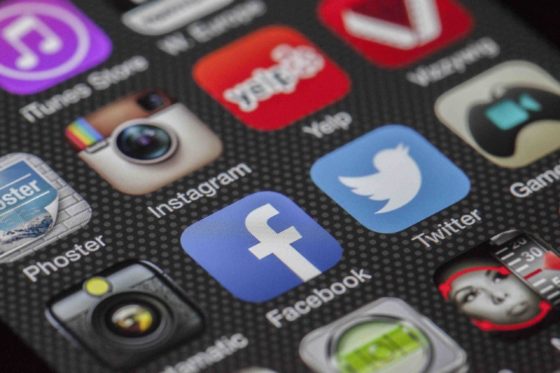
Table of Contents
The Impact of the Internet On Making Contact

Before the Internet made its way into almost all of the homes all over the world, making contact with people was a great deal highly limited. The quickest way was to pick up the phone, but this required the person you were trying to contact must be available at the other end if you wanted to get information to them in any meaningful way.
But the internet has changed and redefined how we connect with others, influencing various aspects of our personal, social, and professional lives. It has expanded our reach, increased our ability to share and receive information, and provided new avenues for expression and collaboration.
Due to the Internet, we have now got the magic of e-mail, which allows us to put down exactly what we want to say, spell check it and read it through before sending it – and even if the person we are trying to contact is not at their computer, they can read it when they get there.
E-mail has also been superseded in many cases by the advent of the Instant Messenger. For many people, this is a waste of time, as they feel that it is easier to pick up the phone and speak to somebody. In some cases, they may be right, but in many cases not.
But if you want to have ready access to information that may not be on the tip of your tongue or on paper in front of you, the Internet is the way to go. You can send links and photographs or any other graphics via an IM service. You can send videos or links to videos already uploaded on a platform online.
The Internet has made getting in contact a great deal easier than once it was, and allows us to get our message across in a more measured way. Some of us are not possessed of a really good phone manner. In such cases, the Internet is more than useful.
Though, the internet has undoubtedly revolutionized contact-making globally and turned the world into a global village, it is important to note that operating online also presents some challenges and potential drawbacks.
Issues such as privacy concerns, online harassment, misinformation, and the digital divide are challenges that need to be addressed to ensure that the internet remains a positive force for connection and communication.
Without any doubt, the internet has totally changed the way we make contact with others. It has revolutionized communication by providing instant access to people all over the world.
Here are some profound ways the internet has influenced how we connect with others:
1. Global Connectivity:

The internet has broken down geographical barriers and made it possible to connect with people from different parts of the world. Through email, social media, video calls, and messaging apps, we can easily reach out to individuals or groups regardless of their location.
This global connectivity has opened up opportunities for cross-cultural exchange, collaboration, and the formation of international communities.
· Economic Opportunities:
Global connectivity has opened up new economic opportunities. The ability to connect with customers, suppliers, and partners from around the world has facilitated international trade, e-commerce, and digital entrepreneurship.
It has allowed businesses and individuals to tap into global markets, expand their reach, and create new avenues for economic growth.
· Access to Information:
Global connectivity has greatly enhanced access to information from around the world. It has revolutionized the way we gather knowledge and connect with others.
· Search Engines:
Search engines like Google, Bing, and Yahoo have made it easy to find information on virtually any topic online.
Search engines provide quick and convenient access to a wealth of knowledge, enabling individuals to stay informed and explore diverse subjects.
By typing in keywords or queries, users can access a vast amount of information from websites, articles, research papers, and more.
Through search engines, online databases, and news outlets, individuals can stay informed about global events, research topics of interest, and access educational resources.
· Online Libraries and Databases:
The internet hosts a multitude of online libraries, digital archives, and databases, offering extensive collections of books, scholarly articles, research papers, historical documents, and other resources.
Platforms like Project Gutenberg, JSTOR, and PubMed provide access to a wide range of academic and scientific literature, enabling individuals to delve deeper into specific fields of interest.
· Educational Resources:
The internet has become a treasure trove of educational resources.
Online learning platforms like Coursera, Khan Academy, and Udemy offer courses, tutorials, and lectures on various subjects, providing opportunities for self-paced learning and skill development.
Additionally, educational websites, podcasts, and video channels provide valuable educational content accessible to anyone with an internet connection.
· Open Access Journals and Research:
The internet has facilitated the growth of open access journals and repositories, making academic research more widely accessible.
Platforms, such as arXiv and PLOS ONE, publish scholarly articles and research papers that are freely available to the public.
Open access promotes the dissemination of knowledge and allows individuals to engage with the latest research findings.
· News and Current Events:
Online news outlets, blogs, and social media platforms have transformed the way we consume news and stay updated on current events.
With a few clicks, individuals can access news from around the world, follow specific topics of interest, and engage in discussions.
Social media has also become a platform for citizen journalism, where individuals can share real-time news and personal perspectives on events.
· Collaborative Knowledge Sharing:
The internet has fostered collaborative knowledge sharing through platforms like Wikipedia and online forums.
Wikipedia, the crowd-sourced encyclopedia, allows individuals to contribute and edit articles on a wide range of topics.
Online forums and communities bring people together to ask questions, seek advice, and share expertise, creating a rich environment for knowledge exchange.
The internet has made accessibility to information very easy, democratizing knowledge, empowering individuals to learn, explore, and connect with others based on shared interests.
It has broken down traditional barriers to information, allowing people from diverse backgrounds to access educational resources, stay informed about current events, and engage in intellectual discussions.
This democratization of information has empowered people to expand their knowledge and engage in informed discussions.
Overall, global connectivity through the internet and digital technologies has transformed the way individuals, communities, and organizations connect, communicate, collaborate, and engage with the world on a global scale.
It has also bridged gaps, fostered understanding, and provided opportunities for personal, social, professional, and economic development.
2. Speed and Convenience:
Unlike traditional forms of communication such as postal mail or landline phones, we can make contact with others instantly through the internet. Emails can be sent and received within seconds, and real-time messaging apps allow for immediate back-and-forth conversations. This speed and convenience have transformed the way we interact, making communication more efficient and responsive.
3. Expanded Social Networks:

Social media platforms offer a blend of personal and professional contact-making opportunities.
Social media platforms such as Facebook, Twitter, Pinterest, Instagrm, Linkedin, Youtube and many others have greatly changed the way we communicate. They serve as communication channels where individuals can connect and engage with others.
They provide features like comments, direct messaging, and posts to facilitate communication, sharing of updates, and content discovery.
They have expanded our social networks by giving us the ability to connect with a large number of people than would be possible in face-to-face interactions alone.
They enable us to maintain real time contact with friends, family, and acquaintances. We can also make new connections with like-minded individuals, professionals in our field, or people who share the same interests with us.
Social media has also made it so easy to reconnect with old friends and classmates, fostering reconnections that may not have been possible otherwise.
4. Diverse Communication Channels:
The internet offers a wide range of communication channels beyond traditional text-based methods offering individuals diverse options to connect and make contact.
Webinars, video calls and conferences, voice chats, and webcams allow for richer and more personal interactions. These online tools enable us to see and hear the person we are contacting, adding depth and nuance to our conversations.
The rise of multimedia content, such as graphics (Infographics), photos and videos, has also made communication much more expressive and engaging.
Below are six of the key ways the internet has provided a wide range of communication channels:
-
Email and Email Marketing:
Email has played a significant role in making contact and has become one of the most widely used forms of electronic communication. It remains one of the fundamental communication channels on the internet.
It allows individuals to send messages, documents, and multimedia content to one another asynchronously.
It allows individuals to send formal messages, business proposals, job applications, and other important correspondence. Email is widely used for formal communication, professional correspondence, and long-form messages that require documentation and archiving.
Email provides a convenient and efficient way to communicate with colleagues, clients, business partners, and potential employers.
It has largely replaced traditional methods such as postal mail and fax in many professional settings.
-
Instant Messaging:
Instant messaging platforms, such as WhatsApp, Facebook Messenger, and Slack, which are well-suited for both personal and professional contact-making have gained tremendous popularity.
These platforms enable real-time text-based communication, allowing individuals to engage in quick and informal conversations, share files, and even conduct voice and video calls.
-
Voice and Video Calls:
Voice and video calling services, such as Skype, Zoom, and Google Meet, provide the ability to have real-time audio and video conversations over the internet.
These channels offer a more personal and interactive communication experience, allowing individuals to see and hear each other, making contact more engaging and effective, especially for remote collaboration and virtual meetings.
-
Video Sharing Platforms:
Platforms like YouTube and Vimeo enable users to upload and share video content with others.
These video sharing platforms provide opportunities for individuals to communicate and connect through video content creation, vlogs, tutorials, and other forms of visual storytelling. Users can engage with others through comments, likes, and shares, fostering interaction and contact-making.
-
Online Forums and Communities:
Online forums and communities are platforms where individuals with shared interests can engage in discussions and exchange information.
Platforms like Reddit, Quora, and specialized forums cater to various niches and topics. These channels facilitate contact-making among individuals seeking advice, information, or like-minded individuals in specific areas of interest.
5. Access to Information:
We can have access to vast amounts of information online, enabling us to research and gather knowledge on a wide range of topics. This information accessibility has facilitated contact by allowing us to learn about new subjects, explore different perspectives, and engage in informed discussions with others.
Additionally, online forums, blogs, and interest-based communities have further enhanced our ability to connect with people who share our passions and pursuits.
6. Overcoming Barriers:
The internet has helped overcome various barriers that may hinder contact in traditional settings.
For individuals with physical disabilities or limited mobility, online communication offers an inclusive and accessible way to connect with others.
Another phenomenal role the internet has also played is bridging language barriers. Translation tools and multilingual platforms are now readily available online, allowing people who speak different languages to communicate more easily.
7. Online Marketplaces and E-Commerce:
The internet has transformed the way we buy and sell goods and services. Online marketplaces and e-commerce platforms like Amazon, eBay, Alibaba etc. have made it possible to connect buyers and sellers globally.
These Online marketplaces and e-commerce platforms have created a vast marketplace that transcends geographical boundaries.
This has empowered individuals to start online businesses, reach customers worldwide, and access a wider range of products and services.
8. Virtual Events and Conferences:
The internet has totally changed the mode events and conferences are adled by enabling virtual participation.
Through live streaming, video conferencing, and virtual event platforms, people from different climes can now attend conferences, workshops, concerts, and other gatherings online from the comfort of their own homes or from anywhere I the world.
This has expanded access to knowledge, networking opportunities, and cultural events.
9. Collaborative Work and Remote Collaboration:
The internet has also transformed the way we collaborate with others on projects and work assignments.
Cloud-based tools, project management platforms, and real-time collaboration software allow individuals and teams to work together remotely, regardless of their physical locations.
This has facilitated global teamwork, freelancing, and remote work arrangements.
10.Online Education and Learning Communities:
The internet has revolutionized education by providing access to online courses, tutorials, and educational resources.
Online learning platforms and Massive Open Online Courses (MOOCs) have made it possible for individuals to learn new skills, pursue degrees in faraway locations with ease, and engage with educators and learners from around the world.
Online Learning Communities have also made knowledge-sharing and collaboration among learners possible.
11.Crowdsourcing and Collective Action:
Collective action and crowdsourcing have been made possible on a massive scale by the internet.
Online platforms and social media have made it easier for individuals to join forces, share resources, and collectively address issues or support causes they care about. Crowdfunding platforms, for example, have empowered individuals and groups to raise funds for projects or charitable initiatives.
12.Personal Branding and Influencer Culture:
The internet has really helped in the area of personal branding, allowing individuals to build their online presence and connect with audiences based on their expertise or interests.
Social media platforms have created opportunities for individuals to become influencers, where they can connect with followers, collaborate with brands, and share their perspectives, shaping trends and influencing consumer behavior.
13.Online Support and Communities:
The internet has facilitated the formation of online support groups and communities where individuals facing similar challenges or interests can connect and share experiences.
Various online communities provide platforms for people to find support, guidance, and camaraderie for health conditions, hobbies, or personal development and others challenges or interests.
14.Social Activism and Awareness
The internet has become a powerful platform for social activism and raising awareness about important issues. Social media campaigns, online petitions, and viral movements have allowed individuals to unite and advocate for causes they believe in, amplifying their impact and reaching a global audience.
The internet has helped to facilitate rapid dissemination of information and has given a voice to marginalized communities.
15.Online Support and Counseling:
The internet has expanded access to support and counseling services through online platforms.
Individuals facing relationship issues, personal struggles or mental health challenges, can connect with qualified professionals or support groups remotely.
Online therapy and counseling have provided an alternative avenue for seeking help and support, especially for those who may face barriers to in-person services.
16.Time Constraints:
The internet’s asynchronous communication capabilities have helped to solve the problem of time constraints in contact-making.
Unlike traditional methods that require simultaneous availability, online messaging and email enable individuals to communicate at their convenience.
This flexibility accommodates different schedules, time zones, and work-life balance, making it easier to connect with others despite time constraints.
17.Political Engagement and Participation:
The internet has transformed political engagement by providing platforms for civic participation, discussion, and activism.
Social media platforms, online forums, and digital tools enable individuals to voice their opinions, engage in political debates, and connect with politicians and decision-makers. The internet has facilitated new forms of political organizing, fundraising, and mobilization, reshaping the political landscape.
In conclusion, the impact of internet on making contact has tremendously transformed the way we connect with others.
Overall, global connectivity through the internet and digital technologies has transformed the way individuals, communities, and organizations connect, communicate, collaborate, and engage with the world on a global scale.
It has bridged gaps, fostered understanding, and provided opportunities for personal, social, professional, and economic development.
However, the Internet’s impact on contact-making and communication continues to evolve as technology advances and new platforms emerge.